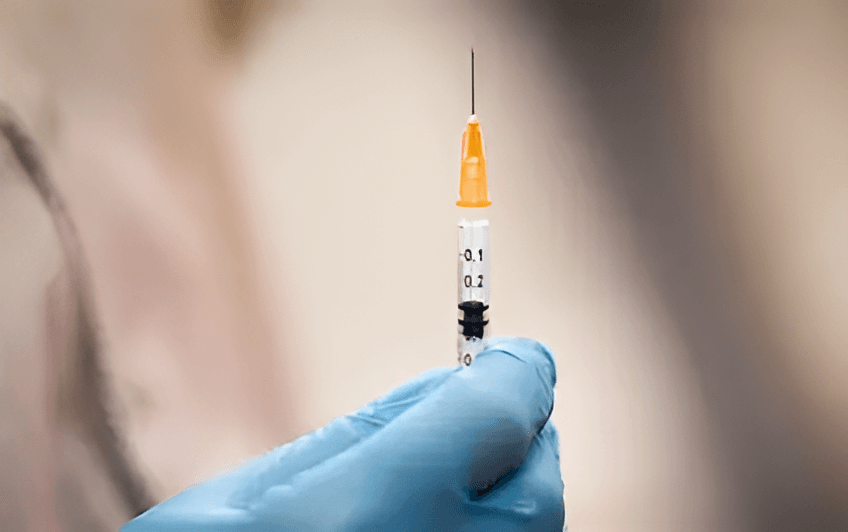
On June 9, 2025, the Supreme Court in Amlesh Kumar vs. The State of Bihar ruled that high courts cannot grant permission to police for a narco-analysis test without the accused’s consent. In the judgment, while discussing precedents, it was declared that the Rajasthan High Court’s judgment in Sunil Bhatt v. State was unsustainable.
Facts:
In this case, the appellant (Amlesh Kumar) was accused of beating his wife and demanding dowry.
On 21st August 2022, the victim’s sister received a call from the appellant stating that her sister had run away from her matrimonial home. He said that his wife got off the bus to relieve herself but never returned.
For any queries or to publish an article or post or advertisement on our platform, do call at +91 6377460764 or email us at contact@legalmaestros.com.
While the investigation was ongoing, the police promised to investigate the matter to the extent and will conduct narco-tests on every accused. The High Court of Patna agreed to it.
Judgment:
The court sought the advice of the amicus curiae (friend of the court) on the matter. The amicus curiae stated many judgments of high courts across India on this matter. One of them was Sunil Bhatt v. State by the Rajasthan High Court. In the judgment, the Rajasthan High Court stated that the accused, at any stage of the trial, can opt for a narco-test to prove his defense.
To this, the Supreme Court refuted that narco-tests and such are not admissible evidence on their own. There needs to be corroborating evidence supporting the statements.
For any queries or to publish an article or post or advertisement on our platform, do call at +91 6377460764 or email us at contact@legalmaestros.com.
Further, the court stated that, though they agree with the Patna Court on the use of modern techniques to investigate cases, to force the accused would be against his right to liberty (Article 21 ) and Article 20(3) of the Indian Constitution.
Therefore, they quashed the permission.
Legal Analysis :
The court relied upon the landmark Selvi and Ors. v. State of Karnataka judgement. Which laid down the guidelines for narco-tests.
For any queries or to publish an article or post or advertisement on our platform, do call at +91 6377460764 or email us at contact@legalmaestros.com.
The judgment states that
- Articles 20 and 21 of the Constitution are non-derogable and sacrosanct rights to which the judiciary cannot carve out exceptions.
That is, no matter what, one cannot make a case exception, however necessary, to these articles. and therefore, cannot force an accused to testify against himself/herself or take a narco-test.
2. The results of such involuntary tests cannot be considered as ‘material evidence’ in the eyes of the law;
For any queries or to publish an article or post or advertisement on our platform, do call at +91 6377460764 or email us at contact@legalmaestros.com.
That is, the statements made during the test cannot alone be used to convict someone. They can be used to discover or lead to other shreds of evidence.
3. For voluntary tests, it must be ensured that appropriate safeguards are in place.




![Research Assistantship @ Sahibnoor Singh Sindhu, [Remote; Stipend of Rs. 7.5k; Dec 2025 & Jan 2026]: Apply by Nov 14, 2025!](https://legalmaestros.com/wp-content/uploads/2025/11/Gemini_Generated_Image_s0k4u6s0k4u6s0k4-768x707.png)
![Karanjawala & Co Hiring Freshers for Legal Counsel [Immediate Joining; Full Time Position in Delhi]: Apply Now!](https://legalmaestros.com/wp-content/uploads/2025/11/Gemini_Generated_Image_52f8mg52f8mg52f8-768x711.png)
![Part-Time Legal Associate / Legal Intern @ Juris at Work [Remote]: Apply Now!](https://legalmaestros.com/wp-content/uploads/2025/11/ChatGPT-Image-Nov-12-2025-08_08_41-PM-768x768.png)
![JOB POST: Legal Content Manager at Lawctopus [3-7 Years PQE; Salary Upto Rs. 70k; Remote]: Rolling Applications!](https://legalmaestros.com/wp-content/uploads/2025/11/ChatGPT-Image-Nov-12-2025-08_01_56-PM-768x768.png)